Readers often ask where authors get their ideas. My answer: Everywhere. Everyone has a story. I keep my eyes and ears open and always ask, “What if?” I also keep a notepad handy.
But most of my inspiration and ideas come from world travel, my second passion. When I travel, I look for the unique features of the country or for pieces of information about the culture that spark a story idea. Sometimes just a word, a phrase, a street scene, an historical event, can spark a full story line, other times they provide incidents to enrich a novel.
And, of course, there is the naïve mistake, the bad decision, that ends in disaster, or a reasonable facsimile thereof. The kind you can laugh about years later, but at the time it's very scary or very traumatic.
But before I talk about my big mistake in Morocco, let's take a minute to visit the country.
THE KINGDOM OF MOROCCO
Al-Mamlakah al-Maġribiyya. The Kingdom of Morocco. The name makes it sound incredibly exotic … and it is!
Morocco, an Islamic country in North Africa, has a population of approximately 32 million and a land area of approximately 274,000 square miles. Separated from the southern coast of Spain by the Strait of Gibraltar, Moroccan history goes back at least twelve centuries. Despite that long and colorful history, it became an independent country only in 1956, when the French relinquished their rule.
As early as the sixth century B.C. the Phoenicians established settlements and eventually the area became part of the Roman Empire until around the fifth century A.D. when it was conquered by the Vandal, Visigoths, and then the Byzantine Greeks [in rapid succession]. The first Islamic conquest in North Africa in 670 AD brought Islamic expansion into this region. In modern history, France showed an interest in Morocco as early as 1830 and, after a series of crises, the Treaty of Fez made Morocco a French Protectorate.
TRAVELING IN MOROCCO TODAY
Tourism a big part of the nation’s economy, and Moroccans work hard at catering to visitors. When I traveled there, the crime rate was low, the government stable, and it was generally a safe place to travel. However, vendors are aggressive and can be very “in your face.”
It's much harder for women to travel in Morocco, particularly alone, than men. Everyone should respect the customs of the country/culture in which they travel, but in Morocco, in particular, women should be attentive to what they wear.

An increasing number of urban Moroccan women no longer completely cover themselves after marriage; you even see women dressed Western style in the cities. But you won’t see bare midriffs, low cut sweaters or shorts. Even today, outside the major cities it’s unusual to see a Moroccan woman who is not wearing traditional clothing. In rural areas and small town medinas it is rare to see an unveiled woman.
Generally, female tourists traveling in Morocco are safe and are treated with courtesy, but sometimes are regarded as fair game by some Moroccan men. This is partly because of the way they dress and partly a result of widespread westernized pornography, which gives a distorted view of western women’s availability.
LOST IN THE MEDINA IN TANGIER
The original idea for All For A Dead Man’s Leg, which was re-released this month, predates the writing by nearly ten years. On my trip to Spain, Portugal, Gibraltar, and Morocco in 1994, I asked our guide, Carl about his worst experience as a tour director. His answer: when he first started working as a tour director, one of his tourists died in Morocco and they had to smuggle the body back to Spain to avoid delaying the tour.
What a great idea for a novel! Over the years, I tried several approaches, but none of them worked. In 2003, my tour director on a trip to Central Europe suggested I use it as the plot for a dramatic WWII novel set in Germany. That same tour director―Paul Fletcher―also told me his worst experience was when a tourist slipped crossing a ramp, caught his foot between the sides of two boats, and lost his prosthetic leg in the river.
Yes, that really did happen! As soon as Paul told me that―Boom―the tourist dying in Morocco came together with the tourist losing his prosthetic leg, and I was off and running. As soon as I got home, I started writing the novel.
Not only did the story idea for the first book come from the Morocco/Spain trip, but also the opening scene draws from my personal experience getting lost in the Tangier Medina, the old walled city or souk which is an outdoor street market. My big mistake was leaving my group (by about ten feet) to buy postcards. The streets were narrow and winding, it was crowded and hot. When I turned around, my group had disappeared. Instead of staying put, I set out to search for them and became hopelessly lost in the twists and turns of the market. Of course, I couldn’t speak Arabic and couldn’t find my way out.
Talk about panic. That was when I learned to always pick up a business card from the hotel I'm staying in. Even if I'd known the name of my hotel, I couldn't have pronounced it. I had no idea which way to go, and I couldn't even ask someone. Also, I was intimidated by the Moroccan men staring at me. And I wasn't a kid at the time, but in my fifties.
When the tour stopped at a carpet factory showroom for a sales pitch, I spoke to the guide and the showroom manager. He summoned an employee who dealt with, and knew, most of the tour directors. I described my guide. The man took me back into the Medina to look for Carl. When he found my group, I was so relieved and flustered, I gave him a fifty dollar tip.
Now I know Carl wouldn’t have left me there, although I would have spent a couple of hours wandering around on my own and getting into who knows what kind of trouble. But what did I know? Not much, apparently.
I saw this quote the other day, although I don’t know who said it. “Bad Choices make good novels.”
□
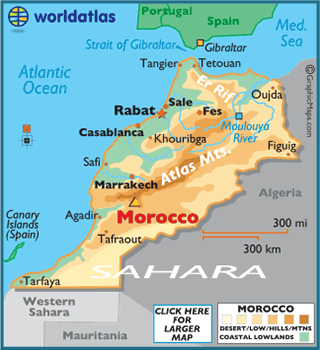

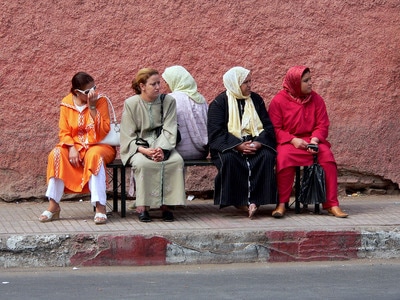



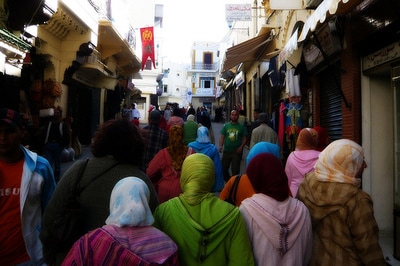









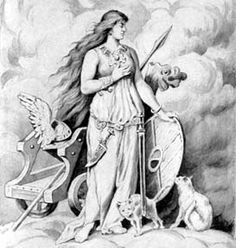





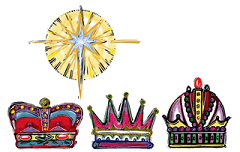

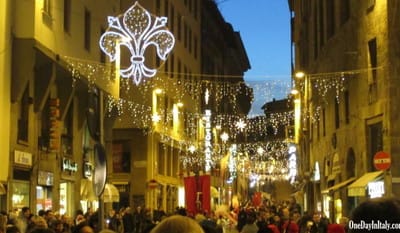
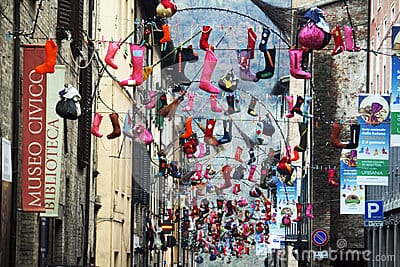
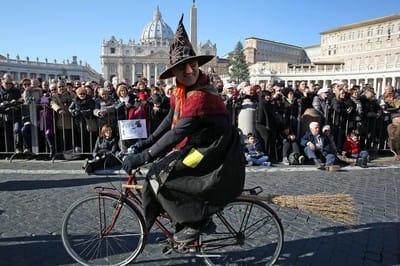
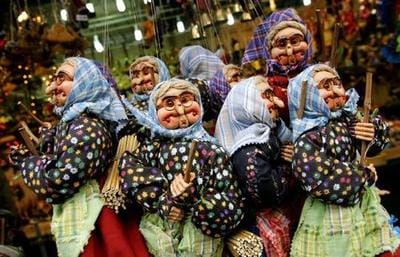




 RSS Feed
RSS Feed